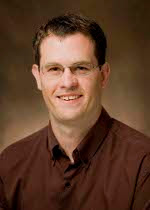I remember one of my recent hockey teams. We were a mid-pack team that would win half our games and lose half our games. For mosts games it would be close and we would have a chance to win or lose. When we did lose, we would assemble in the dressing room after the game, and the guys would come out with their analysis of the loss. Fortunately, in hockey you can blame the refs, but once the ref got a good bad mouthing, we would move on to, "we weren't focused enough".
 Crosby, clearly, just doesn't want it enough (sarcasm).
Crosby, clearly, just doesn't want it enough (sarcasm).To be honest, I didn't say much during these change room talks. My feeling, which I voiced once, but was quickly dismissed, was that we lost games simply due to the fact that they had better players. On average their three lines were more skilled than our three lines, and our strength (which was usually our defense men and goalie) couldn't hold off the attack long enough for our forwards to score. And yet, we would always blame the ref and our mental toughness, concluding that next time we would do better.
Yesterday,
I read an article along these lines prompting this post. We seem to be in a modern era of the blaming the sports/team mind. They/we didn't want it enough. I, myself, have been in team circles emphasizing the importance of focus and desire. Not that mind is not important in sport, but it's time for us to move into the enlightened age where athletes mind, athletes skill, and team strategy are equally responsible for wins and losses.
I would argue that Ultimate is a little different and championships are still won based on personnel (not so much strategy). It's about building a team with enough skilled athletes and shaping their minds. We haven't reached a critical mass point where the difference is small between the best and the stars. Instead, at the top tournaments the difference between a star and a team member can be significant.
For example, in Open clubs you can see that the stronger teams are from larger population centers, and the exceptional teams tend to be from Ultimate meccas that also have reasonably large population base. If the sport continues to grow and stay amateur, then I expect that larger population centers will be the major forces in the sport.
Regardless of where you are, train your team to be skilled, solid in the mind game, and strategise well. Then given a loss or a win, look at the full picture, and ask how each of the three factors could have been improved.
PJ







